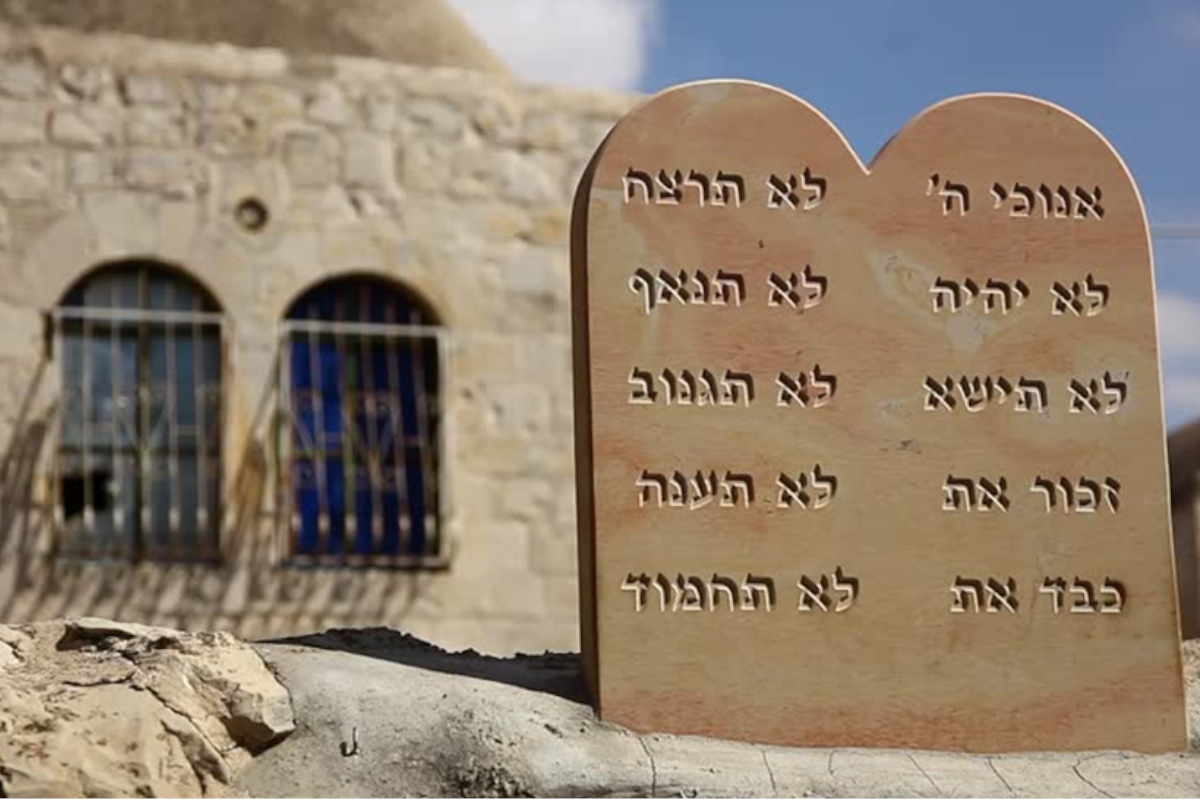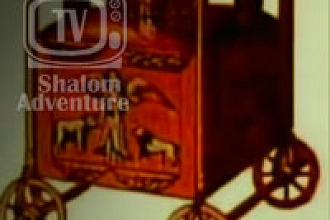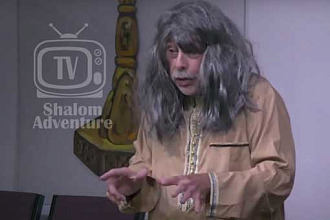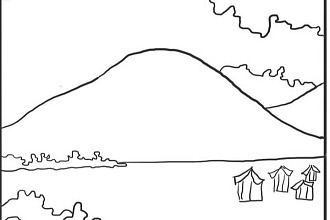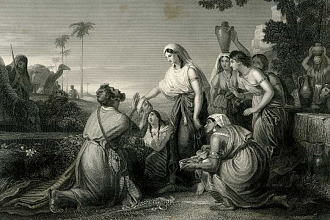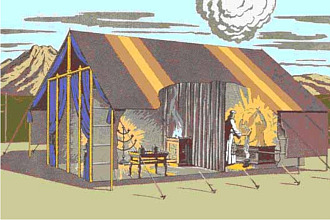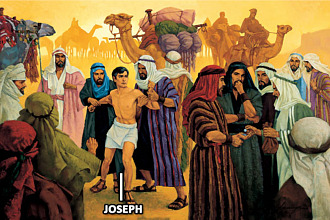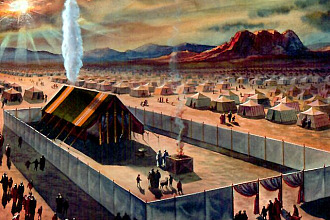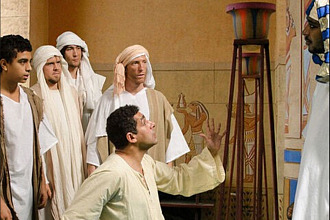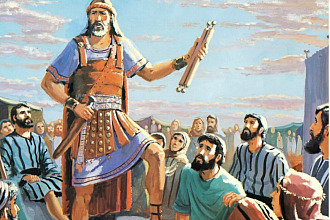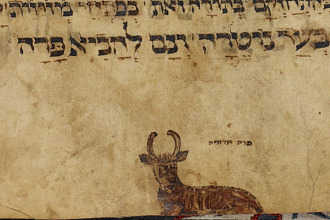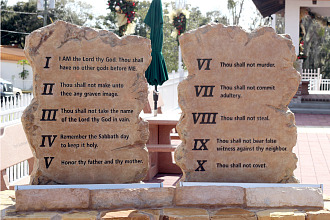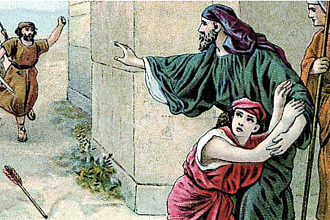Parasha for the Week: Behar-Bechukotai: Leviticus 25:1 – 27:34.
Haftarah for the Week: Jeremiah 32:6 – 27.
Apostolic Writings: Luke 4:14 – 22.
OVERVIEW: BEHAR
The Torah prohibits normal farming of the Land of Israel every seven years. This “Shabbat” for the Land is called shemita. After every seventh shemita, the fiftieth year the yovel (jubilee) is announced with the sound of the shofar on Yom Kippur. This was also a year for the Land to lie fallow. G-d promises to provide a bumper crop prior to the shemita and yovel years. During yovel, all land is returned to its original division from the time of Joshua, and all indentured servants are freed, even though they have not completed their six years of work. An Israelite servant may not be given any demeaning, unnecessary or excessively difficult work, and may not be sold in the public market. The price of his labor must be calculated according to the amount of time remaining until he will automatically become free.
The price of land is similarly calculated. Should anyone sell his ancestral land, he has the right to redeem it after two years. If a house in a walled city is sold, the right of redemption is limited to the first year after the sale. The Levites’ cities belong to them forever. Israelites are forbidden to take advantage of one another by lending or borrowing with interest. Family members should redeem any relative who was sold as a servant as a result of impoverishment.
Overview: Bechukotai
The Torah promises prosperity for the Jewish People if they follow G-d’s commandments. However, if they fail to live up to the responsibility of being the Chosen People, then chilling punishments will result. The Torah details the harsh historical process that will fall upon them when Divine protection is removed. These punishments, whose purpose is to bring the Jewish People to repent, will be in seven stages, each more severe than the last. Sefer Vayikra, the book of Leviticus, concludes with the details of erachin—the process by which someone vows to give the Beit Hamikdash (Temple ) the equivalent monetary value of a person, an animal or property.
“Shemittah and Sinai”
The law of Shemittah was given on Mount Sinai. The word “Mount” in Hebrew is Har, but “on the Mount” is Behar. One question asked in the Talmud is “What is the connection between Mount Sinai and the Sabbatical year?” After all, wasn’t the entire Torah taught at Mount Sinai. Why make particular mention of Mount Sinai with regard to one mitsvah?
“God said to Moses on Mt. Sinai: What is the connection between Shemittah and Mt. Sinai? The meaning is that when Moses went up Mount Sinai after seven weeks, that Israel counted 49 days from Pesach to Shavuot, then that mountain was sanctified, and forbidden from ploughing and sowing on the 50th day, on which the Torah was given. And this is the length of time of the Jubilee, to call for liberty and freedom to all of Israel, freedom on the tablets, by means of the voice of the shofar of the giving of the Torah…” (ben Aaron Luntschitz, Kli Yakar on Leviticus 25:1:1)
The Talmud explains that by this connection we are meant to draw a parallel from this mitsvah to all the other mitsvoth in the Torah. Just as the laws of the Sabbatical year, which require that the land be left uncultivated every seventh year, were taught in full at Mount Sinai so too were all the laws of the Torah taught there. Rabbi Scherman quotes Ramban about the order of the chapters from the Revelation at Sinai to this point.
“During Moshe first sojourn on Mount Sinai, God Gave the laws of Shemittah in outline (see Exodus23:10-11). After the sin of the Golden Calf, Moses returned to Sinai to receive the second Tablets, and then God taught him the details of Shemittah and many other laws, and also the ominous warning found below (chapter 26). Upon this return from the mountain, Moses conveyed the instructions to build the Tabernacle, which the people received joyously, Once the Tabernacle was up, Moses taught its laws and the rituals of the offerings and purity, which form the bulk of Leviticus. With that done, Moses went on to teach the other laws he had received at Sinai, such as those of Shemittah.” (Vayikra 2019, 420).
"A Special Law for a Special Land"
Israel is a unique and special land. This land was God’s promise to Israel’s forefathers, Abraham, Isaac and Jacob and is an everlasting inheritance to the Jewish people of all generations. The Torah proclaims this loud and clear. Anyone who believes in the Bible knows and believes this. That is why a man of Israel must remember that his land belongs to God, and that he is merely a stranger and a sojourner with God; he then neither works his land nor gathers in its produce to ensure his livelihood. “When he ceases sowing and pruning, and when he refrains from reaping the produce that grows on its own, so as to bring it into his home, his land does not provide his livelihood that year. Rabbi Hirsch concludes; Thus, the soil of the whole country is stamped as ownerless, and for a whole year declares before all that Israel is not master of its land.” (Hirsch, Vayikra 2009, 877).
Haftara: Jeremiah 32:6-27
In Jeremiah 32, Hashem wanted to give an important lesson to Israel. At that time, Nebuchadnezzar and his army were surrounding Jerusalem, and everyone had a mind to flee from Judah. Nobody would think to buy a piece of land when there was no future for the people of Judah and the Holy City; nobody would exercise his rights as a redeemer. But Jeremiah accepted this request as coming from G-d. And Jeremiah did everything that was necessary for this transaction to be legal: “So I bought the field that was in Anathoth from the son of my uncle Hanamel, and weighed him the money—seventeen shekels of silver. I signed and sealed the deed, called in witnesses, and weighed the money on the scales. Then I took the purchase deed, both the sealed copy, containing the terms and conditions, and the open copy, and I gave the purchase deed to Baruch son of Neriah son of Mahseiah, in the presence of my uncle’s son Hanamel and in the presence of the witnesses that subscribed the purchase deed, before all the Jews that sat in the court of the guard.” (Jeremiah 32:9-12). We don’t know anything about this field, but we know the cost: “seventeen shekels of silver.” According to scholars this means seven ounces of silver or almost 200 grams of silver.
It is interesting to read that Jeremiah knew that if these deeds were put into an earthenware jar they would be preserved for a very long time: “Take these deeds—this purchase deed, both the sealed copy and the open copy—and put them in a clay jar, so they may last many days” (Jeremiah 32:14)—maybe even until today. Maybe one day the archaeologists will tell us they have found those deeds of Jeremiah in one of their excavations in Jerusalem.
Then we have the prayer of Jeremiah: “After I had given the purchase deed to Baruch son of Neriah, I prayed to Hashem, saying:” (Jeremiah 32:16). This prayer begins with a long praise of Hashem (17-23), and then concludes by calling the attention of Hashem to the enemy soldiers who are at the gates of Jerusalem, emphasizing that it was Hashem who told him to buy the piece of land (25). From verse 26 and onward, we have G-d’s answer: “Then came the word of Hashem to Jeremiah, saying: ‘Behold, I am Hashem, the G-d of all flesh; is there anything too hard for Me?’” (Jeremiah 32:26-27). God’s answer continues from verses 26 to 44. Hashem is the G-d of all flesh, not only to the people of Israel—that is why He can use the Chaldeans to punish Israel if that is His will. And then comes the promise of the restoration of Judah: “See, I will gather them out of all the countries, where I have driven them in My anger, My fury, and great wrath, and I will bring them back to this place and cause them to dwell securely. They will be My people, and I will be their G-d.” (Jeremiah 32:37–38).
Apostolic Writings: Luke 4:14 – 22
The parashah for this week is about the Yovel or Jubilee. The Yovel is a lesson for Israel to learn the freedom which will be given by the Messiah. It is interesting that in the text of the besorah of Luke, Yeshua made a connection between the Yovel and his own ministry as the Messiah. We are on the Autumn of the year 27, Yeshua heard that his cousin Yochanan was immersing people in the Jordan river, close to Jericho, he went there, was immersed. His ministry was confirmed by the Ruach Hakodesh who blessed his immersion. Then he left the Jordan river’ shore full of the Ruach: “Yeshua, now filled with the Ruach ha-Kodesh, returned from the Jordan.” (Luke 4:1). He went first in the wilderness, the region of Jericho is full of deserts, the main one is certainly the Dead Sea and Qumran desert close by. After spending 40 days in the wilderness as Moses and Elijah did before him, he went back home in Nazareth. However, the text affirms that he was already popular: “Yeshua returned in the power of the Ruach to the Galilee, and news about Him went out through all the surrounding region.” (Luke 4:14), at the time of Yeshua each city has its own synagogue and from time to time, if the city was big enough there were several synagogues, Yeshua did not hesitate to stop over some of these synagogues: “He taught in their synagogues, and everyone was praising Him.” (Luke 4:15).
The text of the besorah says, “And He came to Natzeret, where He had been raised. As was His custom, He went into the synagogue on Shabbat,” (Luke 4:16) After enjoying a time with his family on Shabbat he went to his familial synagogue. Everyone enjoyed his presence, after reading the seven section of the parashah starting by the Cohen, then the Levite and five Israelites, came the time of the Haftarah reading. It is a privilege to give the reading to anyone in the synagogue, today in the Sephardic synagogue people have to give a donation to get the privilege to come to read from the Torah or the Tanach. But since it forbidden to use money on Shabbat, the one who would like to make aliyah to the Torah has to promise (in an unction style) the amount he would donate, and has to come back on the week days to bring his donation.
The text says “He got up to read. When the scroll of the prophet Isaiah was handed to Him, He unrolled the scroll and found the place where it was written,” (16–17). According to today schedule of the reading this Haftarah portion from Isaiah 61 is read alongside Parashat Netsavim—just before or after Rosh Hashanah, that is why we said that we are the fall of the year 27 CE. We are sure that Yeshua started his ministry on the fall 27. The reading starts:
“The Ruach Hashem is on me, because He has anointed me to proclaim Good News to the poor. He has sent me to proclaim release to the captives and recovery of sight to the blind, to set free the oppressed, and to proclaim the year of Hashem’s favor.” (18–19). This text is a prophetic text, it is a description of Yeshua ministry, that is why when he gives back the scroll of Isaiah he said: “Today this Scripture has been fulfilled in your ears.” Yeshua proclaimed the year of Hashem’s favor while the text of Isaiah completes it with “the day of vengeance of our God” It is clear that Yeshua came to proclaim a year of release, freedom, good news and healing. It is not time of judgment, that will be the time of his second coming that is why he omitted the last segment of the verse 2.
Yeshua was the first in all history to receive such a full portion of the Ruach Elohim, even Moses, the servant of God who went up to Sinai and spoke personally with God did not receive fully the Ruach Hakodesh as Yeshua received it: The spirit of the Lord was upon Yeshua: to preach the good news to the poor, to bind up the brokenhearted to proclaim freedom for the captives, to release from darkness for the prisoners, to proclaim the year of the Lord’s favor, to comfort all who mourn.
The text of Luke continues “Then he rolled up the scroll, gave it back to the attendant and sat down. The eyes of everyone in the synagogue were fastened on him, and he began by saying to them, “Today this scripture is fulfilled in your hearing.” All spoke well of him and were amazed at the gracious words that came from his lips. “Isn’t this Joseph’s son?” they asked. (Luke 4:20-22). For Yeshua this prophecy was in the process of being fulfilled. “Today this scripture is fulfilled” and the people were amazed, they recognized him as the son of Joseph. The Jewish people had no revelation on the suffering Messiah, they were waiting for the king Mashiach, the “Son of David” the glorious Messiah who had to come to inaugurate the kingdom of G-d. Let’s remember that in the Hebrew Bible we have two visions of the Messiah, the one who will come from heaven “I saw in the night visions, and behold, with the clouds of heaven there came one like a son of man, … And to him was given dominion and glory and a kingdom, that all peoples, nations, and languages should serve him; his dominion is an everlasting dominion…” (Daniel 7:13–14), but we also have another vision of a humble Messiah “Rejoice greatly, O daughter of Zion! Shout aloud, O daughter of Jerusalem! Behold, your king is coming to you; righteous and having salvation is he, humble and mounted on a donkey, on a colt, the foal of a donkey.” (Zechariah 9:9). This humble Messiah was Yeshua who came full of the Spirit of G-d to fulfill the prophecy of Isaiah 61 or the Yovel, let’s get freedom, healing and forgiveness from Yeshua HaMashiach.

